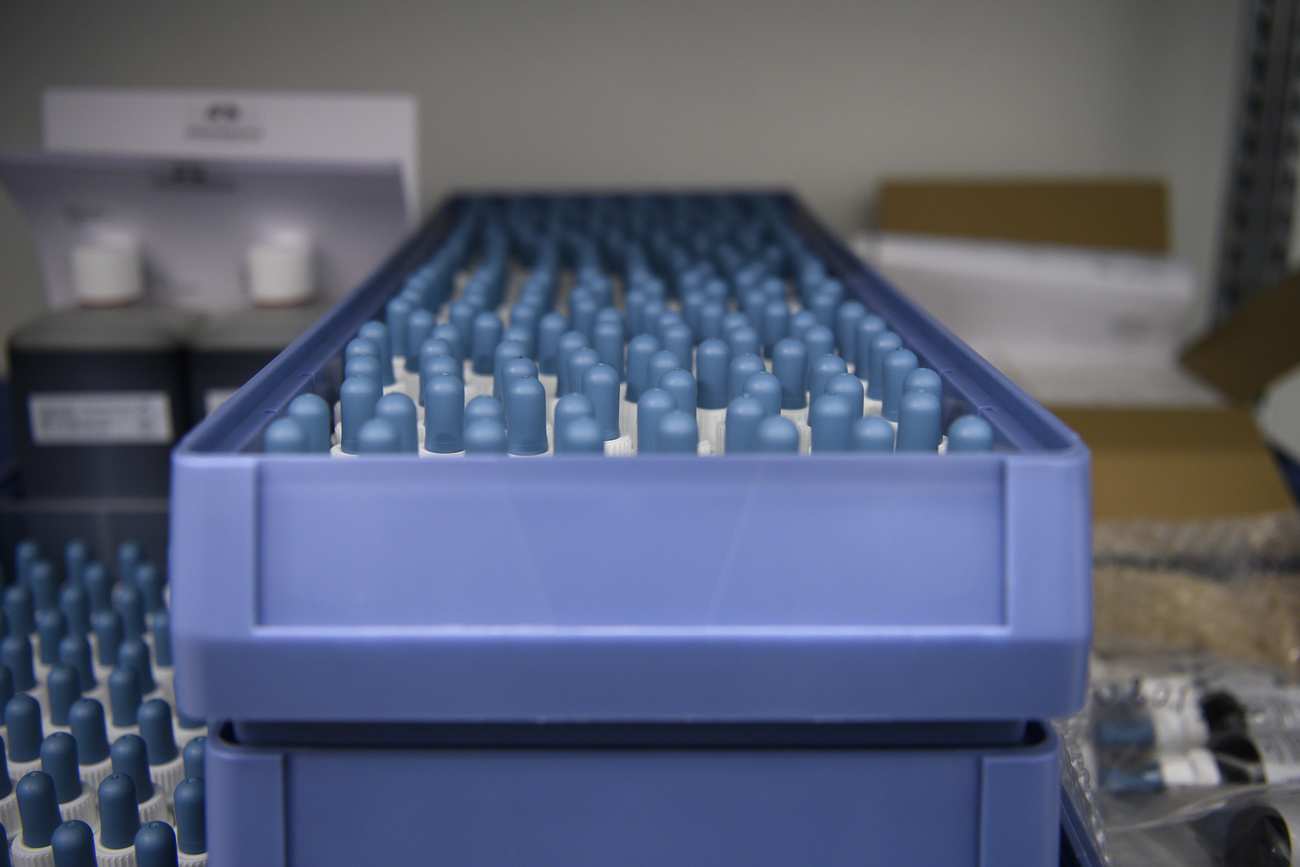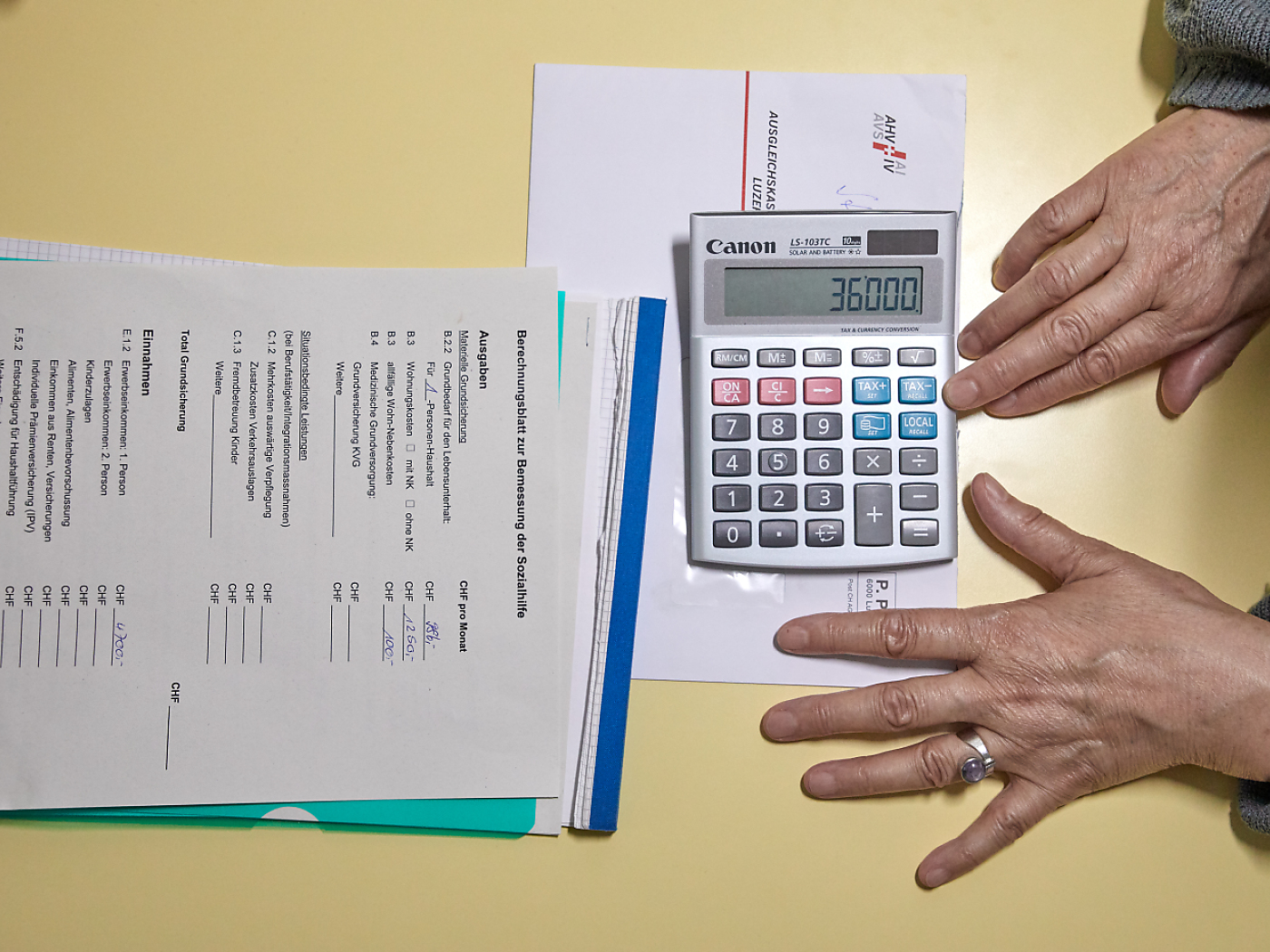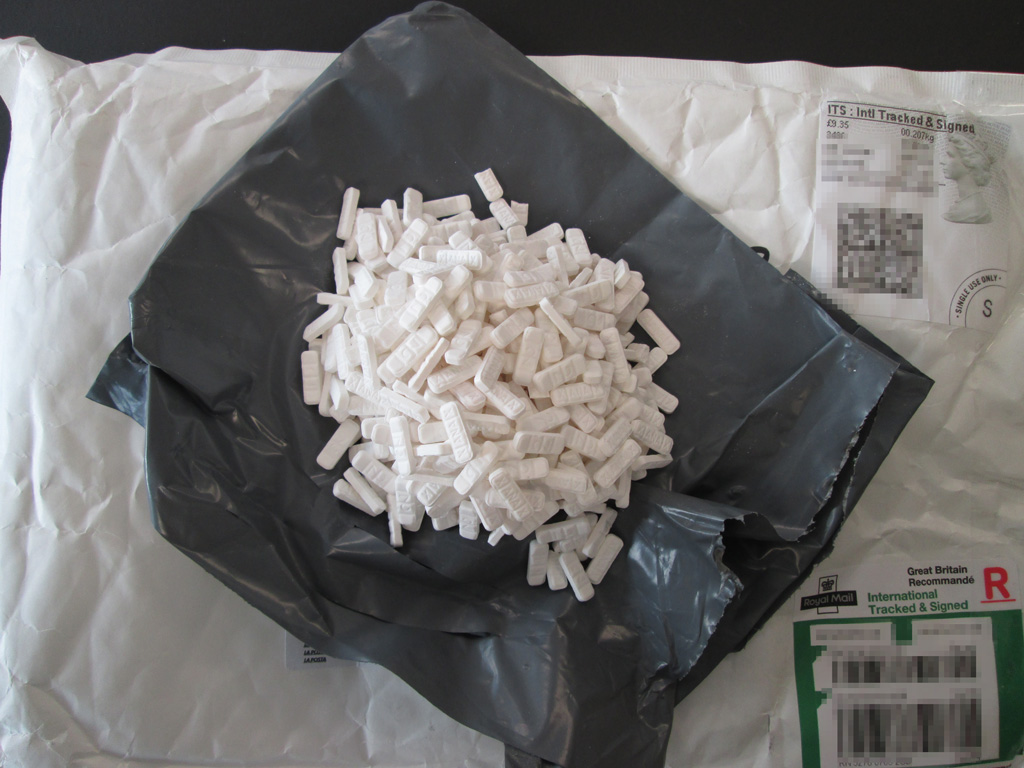Swiss seize 40% more illegally imported medicinal products

Last year 9,421 packages containing illegally imported medicinal products were confiscated in Switzerland, up from 6,733 in 2020. Three-quarters contained erectile stimulants, and half did not contain what it said on the label.
In addition to illegal potency preparations, other preparations seized by the Swiss medical regulator Swissmedic and the Federal Office for Customs and Border Security included prescription-only medicines such as hormones and anti-inflammatories (17%) or sleeping pills and tranquillisers (5%).
Swiss residents also ordered 150 illegal packages connected to the Covid-19 pandemic, Swissmedic saidExternal link on Monday. These included prescription-only products containing the worming agent ivermectin, which is only authorised for animals in Switzerland, hydroxychloroquine or antibiotics from India.
Swissmedic dealt with 8,607 packages under a simplified procedure that involves destroying the products. It also undertook administrative proceedings in 183 cases, the costs of which were charged to the intended recipients. Legal proceedings were initiated in 122 cases; this is the case when large quantities or repeated orders are involved.
A third (35%) of the illegal products were imported from Eastern Europe, primarily Poland, which has overtaken Asia (28%, excluding India, primarily Singapore and Hong Kong) to top the country-of-origin rankings. Western Europe (primarily Germany and Britain) was responsible for 23% of imports and India for 12%. However, the potency preparations from Poland were all erectile stimulants manufactured in India.
Swissmedic suspects that new illegal distribution channels have been set up since the authorities successfully shut down the transit route via Singapore in October 2020 as part of the internationally coordinated “Hydra” operation.
Major health risk
The medical regulator said it frequently found during controls that buyers of these products believed they had shopped on a website belonging to a Swiss pharmacy. In reality, they are being specifically targeted and deceived, it said.
“By displaying Swiss flags and the logos of well-known Swiss companies (such as Swiss Post), by giving prices in Swiss francs and showing automatically generated, fictitious customer feedback from Switzerland, these online shops lead customers to believe they are dealing with an authorised Swiss mail-order pharmacy,” it said.
Swissmedic warned that anyone who used medicinal products obtained through uncontrolled online channels was running a major health risk.
“Medicines from dubious sources that are a front for criminal networks are often supplied without a box or package leaflet and do not warrant the purported cost savings,” it said. “In fact, medicines with the wrong active substance content or potentially dangerous constituents are damaging to health. Never take a risk. Only products obtained through monitored distribution channels are safe, effective and of good quality.”

In compliance with the JTI standards
More: SWI swissinfo.ch certified by the Journalism Trust Initiative





















You can find an overview of ongoing debates with our journalists here . Please join us!
If you want to start a conversation about a topic raised in this article or want to report factual errors, email us at english@swissinfo.ch.